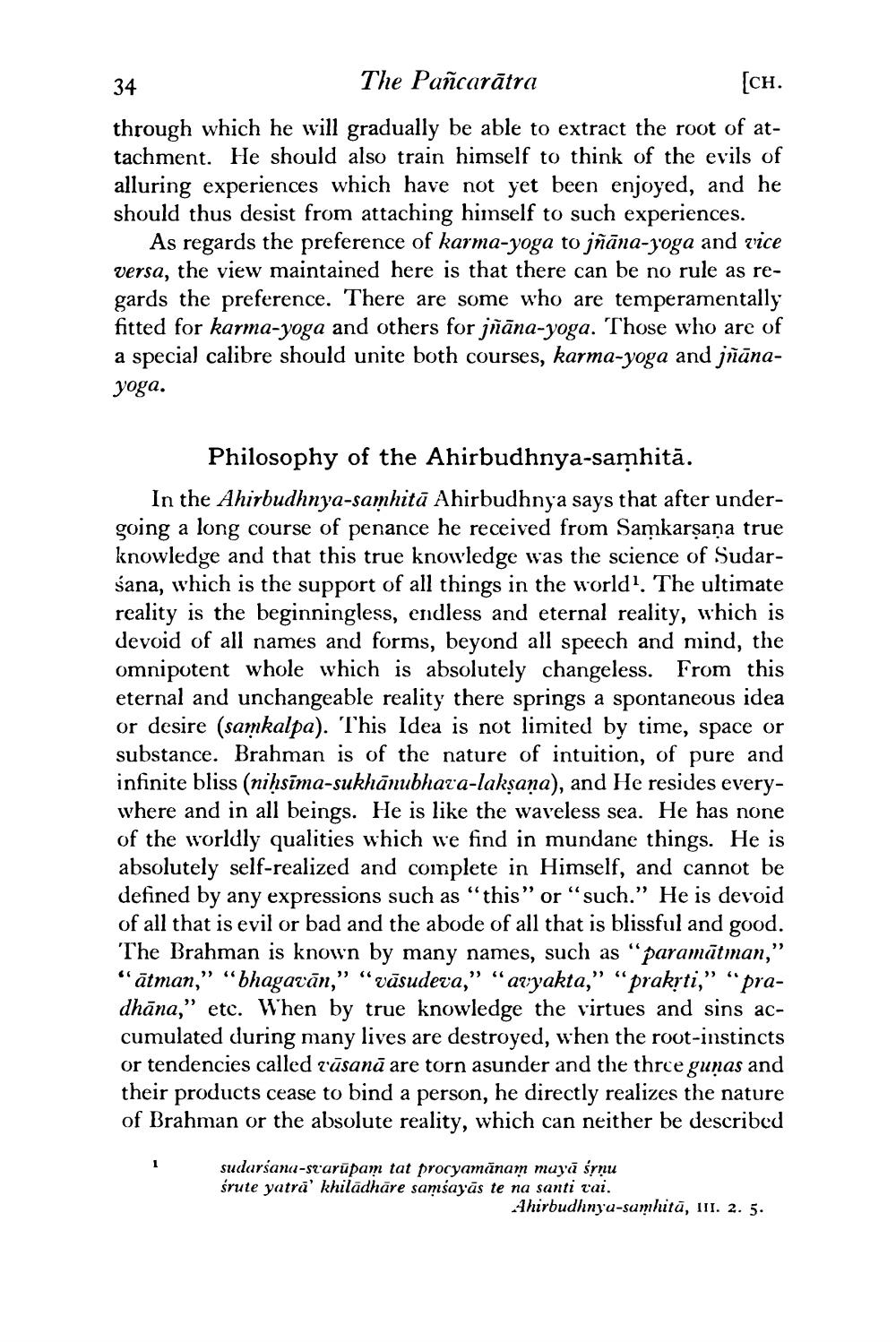________________
The Pañcarātra
[CH.
34
through which he will gradually be able to extract the root of attachment. He should also train himself to think of the evils of alluring experiences which have not yet been enjoyed, and he should thus desist from attaching himself to such experiences.
As regards the preference of karma-yoga to jñāna-yoga and vice versa, the view maintained here is that there can be no rule as regards the preference. There are some who are temperamentally fitted for karma-yoga and others for jñāna-yoga. Those who are of a special calibre should unite both courses, karma-yoga and jñāna
yoga.
Philosophy of the Ahirbudhnya-samhitā.
In the Ahirbudhnya-samhitā Ahirbudhnya says that after undergoing a long course of penance he received from Samkarṣaṇa true knowledge and that this true knowledge was the science of Sudarśana, which is the support of all things in the world1. The ultimate reality is the beginningless, endless and eternal reality, which is devoid of all names and forms, beyond all speech and mind, the omnipotent whole which is absolutely changeless. From this eternal and unchangeable reality there springs a spontaneous idea or desire (samkalpa). This Idea is not limited by time, space or substance. Brahman is of the nature of intuition, of pure and infinite bliss (niḥsīma-sukhānubhava-lakṣaṇa), and He resides everywhere and in all beings. He is like the waveless sea. He has none of the worldly qualities which we find in mundane things. He is absolutely self-realized and complete in Himself, and cannot be defined by any expressions such as "this" or "such." He is devoid of all that is evil or bad and the abode of all that is blissful and good. The Brahman is known by many names, such as "paramātman," ‘ātman,” “bhagavān,” “vāsudeva," "avyakta," "prakṛti," "pradhāna," etc. When by true knowledge the virtues and sins accumulated during many lives are destroyed, when the root-instincts or tendencies called rusană are torn asunder and the three gunas and their products cease to bind a person, he directly realizes the nature of Brahman or the absolute reality, which can neither be described
""
1
sudarśana-svarupam tat procyamānam mayā śṛṇu śrute yatra' khilädhäre samsayās te na santi vai.
Ahirbudhnya-samhita, III. 2. 5.




